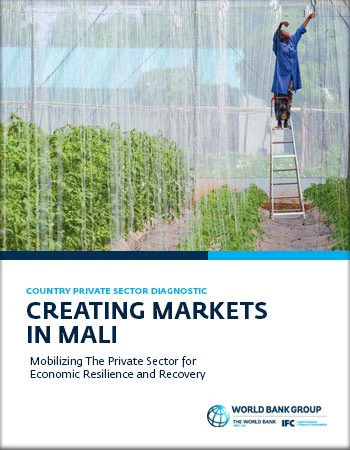Mobilizing the Private Sector for Economic Resilience and Recovery
Despite a deteriorating security situation and the onset of the COVID-19 pandemic, economic growth in Mali has averaged 5 percent since 2014. This robust growth performance has largely been driven by rising commodity (mostly gold) exports and agricultural production ― and buoyed by high levels of remittances, foreign aid, and external borrowing to meet budgetary needs. A landlocked, low-income and fragile Sahelian country, Mali faces challenges related to a non-diversified economy, high poverty rates, regionalized conflicts and political volatility. Recent years have proven especially difficult, with two coups in 2020-21 which have exposed the country’s new transitional authorities to severe diplomatic, economic and financial sanctions. Notwithstanding this difficult context, Mali is endowed with a vibrant and resilient private sector that constitutes an untapped engine of growth and job creation for a strong post-COVID-19 recovery.
A private sector ― driven development trajectory is crucial for generating job opportunities for a labor force that is estimated to grow by 235,000 workers every year, with more than half of the country’s population younger than age 24. Recognizing the potential for Mali’s private sector to contribute more effectively to growth resilience and recovery, the Mali Country Private Sector Diagnostic (CPSD) examines opportunities and constraints in five key sectors: agribusiness, energy, transport and logistics, digital infrastructure and services, and financial services. In particular, the report identifies specific agribusiness value chains where Mali has a remarkable comparative advantage, and which can represent a bedrock for export diversification and structural transformation.
Download
